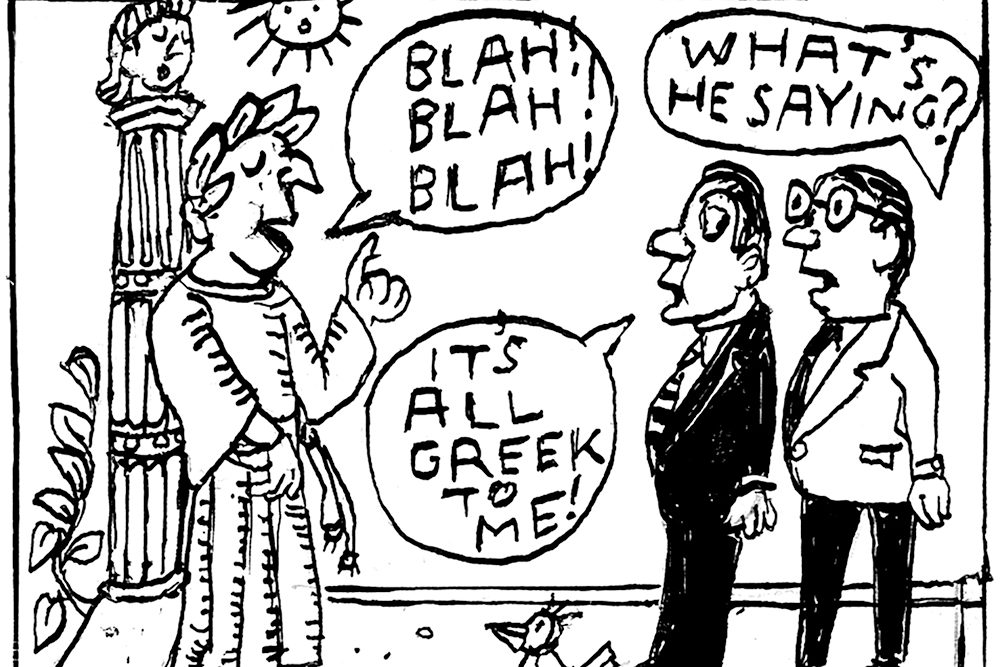This week, after many hours of questioning during the Senate hearings deciding her nomination, Judge Amy Coney Barrett used the term ‘sexual preference’ in passing. Her hearings had been so staid and her performance so even-keeled that the use of the term became a huge deal as no other excitement was forthcoming. This despite the fact that her point was she would not discriminate against anyone on the basis of their orientation.‘If it is your view that sexual orientation is merely a preference…then the LGBTQ community should be rightly concerned whether you would uphold their constitutional right to marry,’ Sen. Mazie Hirono admonished.Until Coney Barrett said it, few had a problem with the term. After all, Democratic presidential nominee Joe Biden used it in May to no criticism at all. Conservative outlets released clips of many Democrats, including Rep. Keith Ellison and Sen. Sheldon Whitehouse saying it. The icing on the cake was a video clip of the late Supreme Court Justice Ruth Bader Ginsburg using the term. The term fell so swiftly out of favor that the Merriam-Webster dictionary changed the definition of ‘sexual preference’ to describe it as an offensive term in response to the Coney Barrett brouhaha. What the incident really exposed, however, is what a deeply conformist moment we are in. Editors of a dictionary rushing to change the definition of a word after it is used in a way that has fallen out of favor is downright Orwellian. ‘What non-PC people often don’t understand is the role that language policing provides for progressives,’ Michael Malice noted in the New York Observer in 2016. ‘Using jargon is one of the quickest and easiest ways to demonstrate that a person is who they are presenting themselves to be. Conversely, saying the wrong thing is immediate proof that we are dealing with someone who doesn’t belong.’When all the people on the left used ‘sexual preference’, it was OK because they were in the ‘in’ group. Who was going to correct Ruth Bader Ginsburg? Nobody. When Amy Coney Barrett used it, it was not OK because she’s out of the circle. The problem, of course, as any teenage girl who has been suddenly shunned by her friends could tell you, is that the circle often tightens. When the name of the game is compliance, any misstep can force you outside the group.It’s not just Coney Barrett and this one expression. The demand is conformity and saying what those in charge want said in the exact way they want you to say it. We saw it this summer when protesters cornered people dining at outdoor restaurants and forced them to show solidarity with their cause. We also see it in the ‘diversity training’ that is being made standard at so many companies.
[special_offer]
There’s an insistence right now for a correction of our language to prove we’re the good ones, the smart ones, the ones belonging to the right group. One of the people driving that demand is writer Ibram X. Kendi whose book How to Be an Antiracist has spent much of this year on the New York Times bestseller list and is taught in high schools and colleges. In it, Kendi stomps all over the idea, once central to the Civil Rights movement, that we should strive for a ‘color-blind society’. He demands a shift in language away from that to a new way of using words. If you call yourself ‘not racist’ then you likely are racist. The new term is ‘antiracist’ and only a racist wouldn’t understand that. Kendi made news during the Coney Barrett hearings by tweeting ‘Some White colonizers “adopted” Black children. They “civilized” these “savage” children in the “superior” ways of White people, while using them as props in their lifelong pictures of denial, while cutting the biological parents of these children out of the picture of humanity.’ Putting aside the absurd accusation, which he later clarified was not specific to Coney Barrett but possibly to any white adopter of black children, the words ‘adopted’, ‘civilized’, ‘savage’ and ‘superior’ are in quotes as if they don’t mean what they actually mean. Perhaps they no longer do. We’ll have to wait for Merriam Webster to weigh in.

























